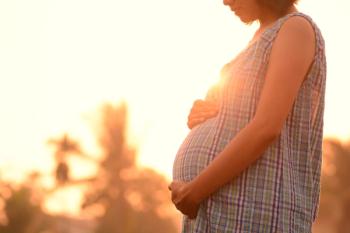
- November 2021
- Volume 38
- Issue 11
In prematurity, twins can have developmental advantages over singletons
A recent study indicates that when born prematurely, twins may have some gains over singleton babies.
A milestone-related assessment of early psychomotor development of preterm (PT) twins compared with PT singletons found that twins born between 32 and 33 weeks’ gestational age (GA) have an early neuro- development advantage over their singleton peers. Italian investigators conducted developmental assessments in 73 PT twins and 207 PT singletons throughout the first 18 months of life. Assessments, using standardized tests and parental observation, included primary gross motor milestones, beginning of babbling, early visual fixation, and being able to follow a moving object. Investigators divided participants into 3 groups according to GA: 17 born at less than 31 weeks (group 1), 30 born between 32 and 33 weeks (group 2), and 26 born between 34 and 36 weeks (group 3). Twins in group 1 not only spoke their first single word significantly earlier than singletons in the group did but also demonstrated persistent superior language skill achievement at long-term follow-up together with better oculomanual abilities. Compared with singletons, group 2 twins also spoke their first single words at a younger age and achieved standing, walking, and pointing earlier. No significant differences emerged between group 3 twins and singletons except that twins demonstrated worse personal and social skills than singletons at long-term follow-up. Overall, investigators concluded that the differences in twins compared with singletons in the 3 groups were independently related to their gemellarity (“twinness”).
Thoughts from Dr. Farber
This is an interesting finding. An earlier study showed that firstborn twins above 28 weeks’ gestation were less likely to have respiratory distress syndrome than singletons. I wonder whether better lungs account for some of the difference. Unfortunately, many of the children, twins or not, had developmental delays at 25 to 36 months of corrected age.
Reference
1. Turriziani L, Cafeo A, Pino G, Vetrano N, Alibrandi A, Di Rosa G. Early psychomotor advantage in moderately preterm twins born between 32 and 33 weeks. J Pediatr Neurol. 2021;19(4):240-246. doi:10.1055/s-0040-1709719
Articles in this issue
about 4 years ago
Dr. Offit on COVID-19 vaccines for childrenabout 4 years ago
2021 CDC vaccine scheduleabout 4 years ago
The future of vaccinologyabout 4 years ago
The vaccine-hesitant patientabout 4 years ago
Looking at the scalp and nails during a skin exam is keyabout 4 years ago
Immunization information systems: Beyond the basicsabout 4 years ago
The history of vaccinationabout 4 years ago
Dedicated to vaccinesNewsletter
Access practical, evidence-based guidance to support better care for our youngest patients. Join our email list for the latest clinical updates.








